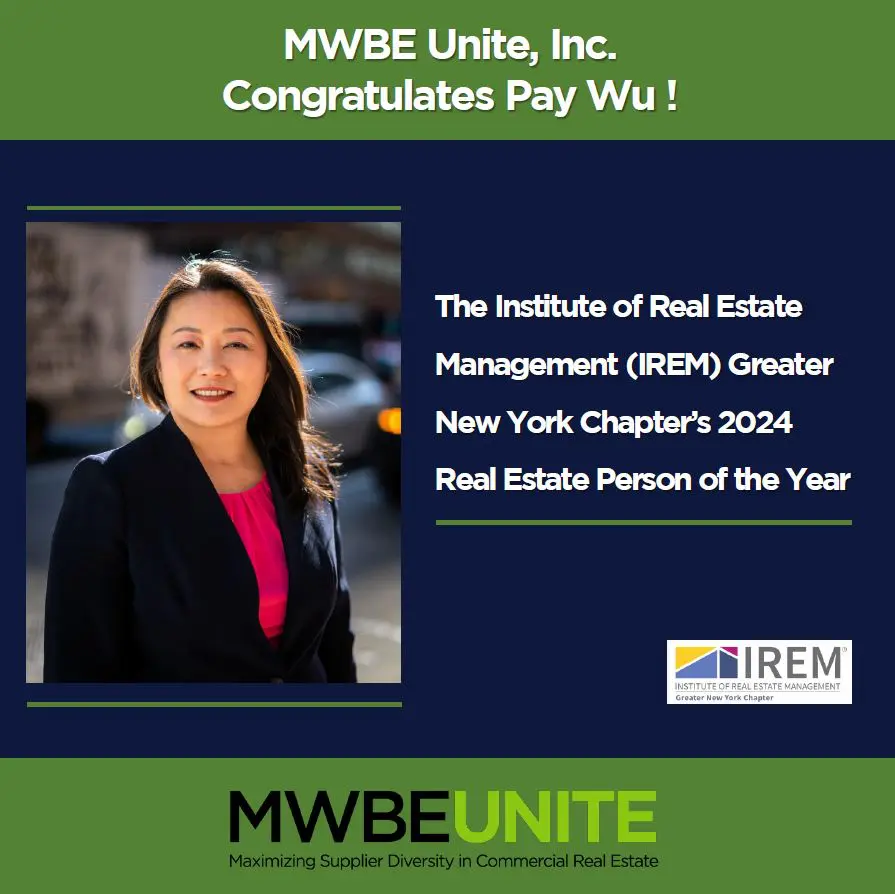
Pay Wu, President and Co-Founder of MWBE Unite, named 2024 Real Estate Person of the Year by IREM Greater New York Chapter.
Why now, why CRE?
By Pay Wu – President, MWBE Unite, Inc.

The COVID-19 pandemic brought ESG and DEI priorities to the forefront, with several areas within commercial real estate (CRE) gaining prominence. CRE has a significant role to play in meeting ESG and DEI goals. Here’s why:
- Real estate and built environment account for significant portions of an organization’s SG&A spend. Using diverse and sustainable suppliers contribute to commitments and social impact.
- Real estate as a sector employs many individuals throughout lifecycle of services and remains a sector that can contribute to
generational wealth creation and provide thriving careers for underrepresented workforces. - The construction process and green considerations have a significant impact on carbon emissions. CRE plays a crucial role in installation, investment, operations, and efforts to mitigate carbon emissions.
- Projects undertaken by companies in cities and municipalities contribute to social impact investments, community development, job creation, and improvements in neighborhoods.
ESG and diverse supplier initiatives are subject to significant reporting and regulatory requirements, to report on initiatives and progress. Regardless of where you stand in the lifecycle of commercial real estate, you have a role to play in driving impactful outcomes. The real estate sector has the potential to drive change and create more inclusive practices.

Chasing Diversity in Corporate Real Estate and Technology
By David Karpook – Director of Business Development and Strategic Consultant at Planon Software
Diversity, equity and inclusion (DEI) programs abound in the corporate world, and evidence continues to mount that more diverse organizations produce better financial results. Yet when it comes to results, progress remains slow in building a more diverse, equitable and inclusive workforce.
Focusing on two important sectors, technology and corporate real estate (CRE), we took a look at some of the evidence of progress, as well as the issues that have stymied forward movement. Both of these sectors, while offering good jobs with numerous benefits, are considered to be somewhat lagging in growth of diversity. To varying extents, they remain dominated and led by white men.
Why is this so?
The short answer seems to be that history is hard to overcome.
Both the technology and CRE professions arose in a time period when the commercial and financial worlds were almost exclusively populated by white men.
Education in technical disciplines was overwhelmingly geared toward men. Ethnic, racial and cultural minorities found these career and educational options difficult to attain. Moves toward diversity began to take shape along with the civil rights and feminist movements of the 1960s and 1970s, but cultural bias against women and minorities in management, leadership and technology persisted.
